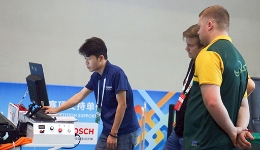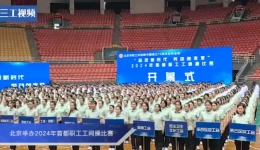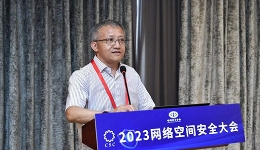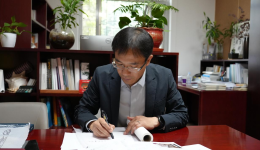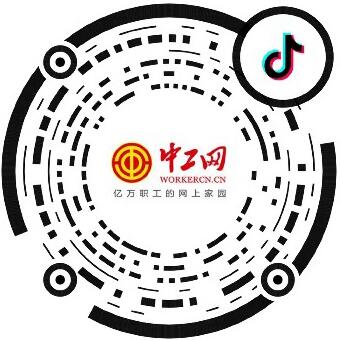Original title: the value implication of Chinese excellent traditional culture from the perspective of politics
General Secretary Xi Jinping pointed out: "Chinese style modernization is the modernization of continuing the ancient civilization, not the modernization of eliminating the ancient civilization; it is the modernization that grows out of the land of China, not copying the modernization of other countries; it is the result of civilization renewal, not the product of civilization fragmentation. Chinese style modernization is the new destiny of the Chinese nation and will certainly promote the rejuvenation of Chinese civilization. " From the perspective of politics, in the process of modern transformation of Chinese civilization, the outstanding traditional Chinese culture, with its outstanding civilization connotation, has become the profound foundation of building the modern civilization of the Chinese nation after experiencing the creative transformation in practice and theory. Among them, such ideas as "the destiny of heaven is universal, the people are the foundation of the state", "the nine states run together, the world is one family", "appointing people on their merits, and governing with virtue" not only contain profound historical logic, but also highlight the distinctive value of the times.
The Political Order Rationale of "The Fate Is Favourable, The People Are the Foundation of the State"
The Chinese civilization is the only great civilization in the world that has been developing continuously and in the form of a country. From the perspective of the long period of history, one of the important reasons why the Chinese civilization has been able to continue through ups and downs is that the value principle of "the destiny of heaven is always popular, and the people are the foundation of the state" has concentrated the political and ethical responsibilities of the wise and talented people and heroes. "Destiny prevails" is a deep sense of hardship. Destiny can change and transfer, which means that the responsibility of building the country and governing society is open to virtuous individuals and collectives in the historical situation. The so-called "Heaven has no relatives, but virtue is auxiliary". "The people are the foundation of the state" is a profound political rational spirit. "The people are the most valuable" advocates that the people's life and the people's aspirations are the universal criteria for judging political integrity. The so-called "If you win the people, you will win the world". The combination of "the destiny of heaven" and "the people are the foundation of the state" presents the principle of the rise and fall of the political order as the mutual shaping of the upward concentration of responsibility and the downward distribution of morality and energy. This principle not only transcends the success or failure of individuals and groups as the basis of legitimacy, but also spreads in the systems and actions of different times as the basic pursuit.
In the long history of the development of China's traditional political order, "the destiny of heaven is universal and the people are the foundation of the state" has always maintained its principled position, constantly stimulating new ideas and practices. In the political reform during the Yin and Zhou Dynasties, the people of Zhou Dynasty changed the source of the ruling qualification from "imperial mandate" to "divine mandate" with a conscious spirit of reflection, and turned the appearance of "divine mandate" from divination to "imperial mandate" to learning from "people". Whether "respecting morality and protecting the people" became an internal principle to measure the good governance and governance. In the ideological contending of various schools of thought, "the destiny of heaven is universal, and the people are the foundation of the state" has not only been inherited as the basic pursuit of political life, but also gained more conscious and profound ideological connotation in the inquiry of various schools of thought about the way of life in the world and the world. "Heaven sees self, people see self, and heaven hears self, people hear" has become the common political concept of Confucianism and Legalism. Since then, whether the goal of the actors is revolution or success, and whether the position of the thinkers is justification or criticism, "the destiny of heaven is universal and the people are the foundation of the state" has been regarded as the core rationale of the political order, running through the whole of ideology, system construction and governance practice, showing the continuity of civilization.
In the modern transformation process of Chinese civilization, in the face of the overall crisis of "humiliation of the country, hardship of the people, and dust of civilization", the principle of "the destiny of heaven is universal, and the people are the foundation of the state" has constantly inspired people of insight to explore the path and goal of the continuation and revival of civilization. In this process of thinking and practical exploration, the Communist Party of China has truly shouldered the dual responsibility of national construction and civilization revival, and led the revolution, construction and reform practice aimed at realizing the people's ownership. General Secretary Xi Jinping pointed out: "We must adhere to the original intention when laying the foundation and starting our own business, adhere to the Party's ideals, beliefs and purposes, always work for the happiness of the Chinese people and the rejuvenation of the Chinese nation, always maintain the flesh and blood ties between the Party and the people, and always maintain the Party's advancement and purity." The CPC, as a Marxist party, has a profound self revolutionary spirit, The spirit of carrying forward the past and opening up the future and the sense of hardship of the Chinese Communists, who never forget their original intention and remember their mission, have profound Chinese civilization.
The political civilization pattern of "Kyushu, one family in the world"
General Secretary Xi Jinping pointed out that "the long-term tradition of great unity of the Chinese civilization has formed the unity of pluralism, unity and concentration." The Chinese civilization contains many cultural units, and different regions and ethnic groups have jointly shaped the basic pattern of the Chinese civilization of "nine states, one family under heaven" through long-term integration and symbiosis, It has formed a community of political civilization with rich internal elements and distinctive overall characteristics. It is the civilization goal and political pursuit of Chinese civilization that support the cohesion of many cultural units. On the one hand, what unites the Guangtu giant ethnic groups beyond the ethnic boundaries is the universal pursuit of the way of civilized life of cohabitation. This pursuit runs through the whole process of ethnic exchanges, exchanges and integration, no matter whether you live in the Central Plains or the border areas, and no matter how the historical names of ethnic groups change. On the other hand, the universal pursuit of civilization is shown as a concrete and multi-dimensional pattern through the actions and thinking of various ethnic groups. In particular, the symbiosis and integration of many ethnic groups gives birth to the opportunity for civilization renewal. It is in the relay of different ethnic groups within the Chinese civilization that it has constantly gained new vitality and vitality, and thus continued and developed.
From the perspective of historical changes, the cultural units that are distributed in the vast territory and present a variety of states are gradually condensed in the conscious exploration of Chinese civilization in building the country and governing society. The key link is the patriarchal enfeoffment system in the Zhou Dynasty and the extensive implementation of the prefectures and counties system in the Qin Dynasty. Before the Zhou Dynasty, Xia and Shang had successively become leading powers in the cause of "harmony among nations". Zhou adopted a more rigorous enfeoffment system, which not only brought about the flow of population and culture in the vast territory, but also created many vassals as geopolitical units, It has promoted the blending and symbiosis of diverse cultures within civilization in an institutionalized way. After the Qin Dynasty unified the six countries, on the basis of taking diversified governance measures for regions and people with different customs, it implemented the prefectures and counties system that had been mature in long-term historical practice, created the basic form of "being prefectures and counties within the sea, laws and regulations being unified" in China for more than 2000 years, and greatly improved the unity of the community of political civilization. In the absorption and cohesion of the political civilization community, the universal pursuit of civilization and the specific cycle of ethnic practice have shaped the pattern of "nine states in one family under heaven".
The construction of a unified multi-ethnic country led by the Communist Party of China inherits the vast territory of ancient China, covers the cultural units within the Chinese nation, and activates the pursuit of civilization of Chinese civilization. In the system construction under the leadership of the Communist Party of China, "we did not engage in federalism or confederation system, but established a unitary state form and implemented the system of regional national autonomy, which is to conform to the general trend of the development of the Chinese nation, which is inward cohesion and pluralism, and inherit the tradition of the unification of Chinese culture with nine states, six contracts and one family from all over the world", Thus, the cultural subjectivity and historical initiative have been maintained, and a closer community of the Chinese nation has been formed.
The Political Ethical Spirit of "Virtue in Politics and Employing Talents"
General Secretary Xi Jinping pointed out that "Chinese intellectuals have always had a strong sense of family and country and a strong sense of social responsibility. These ideas are respected by generations of intellectuals, such as' cultivating moral integrity, governing the country and pacifying the world ',' setting a mind for the world, making a life for the people, going to saints and inheriting unique learning, and opening peace for all generations', 'worrying about the world first, and enjoying the world later'." Corresponding to the pursuit of "peace and harmony" and the sense of social responsibility, the Chinese civilization has long held the political ethics spirit of "virtue for politics and merit for appointment", which encourages talented and virtuous people to join in the practice of building the country and governing society, and bring their talents and virtues into play in the broad political and social fields. "To govern with virtue, for example, Beichen lives in its place and all the stars share it". Only with a high degree of virtue and ability can we assume the responsibility of supporting, enriching and educating the people. To achieve this goal, we need to fill the government with outstanding talents and virtues, and select and appoint talents according to the standard of "talents".
As early as in the Western Zhou Dynasty, "virtuous and virtuous" had become the selection principle of Qing scholar bureaucrats. The "family world" of monarchs and marquises was supplemented by the "official world" of Qing scholar bureaucrats. The so-called "benevolent people are better than relatives of Zhou". During the Spring and Autumn Period and the Warring States Period, the formation of the scholar class and the development of the thought of selecting talents and promoting ability provided the social and ideological basis for the political ethics spirit of "virtue for politics and merit based appointment". After the Qin and Han Dynasties, the cultivation, selection and appointment of talented people became an important part of China's traditional political order, especially the succession of the procuratorial examination system and the imperial examination system, which provided a stable institutional basis for the political pursuit of selecting talented people and lifting their talents. Through the system of procuratorial examination and requisition, the central government of the Han Dynasty selected talents from all parts of the country to join the decision-making and implementation system, transforming the harsh rule of the knife and pencil officials into a scholar bureaucrat politics with the goal of virtue. Similarly, through the selection of imperial examinations and the matching classical education, all dynasties since the Tang and Song dynasties have widely absorbed talented and talented people from different strata to participate in political practice, and the pursuit of virtue has been widely and deeply penetrated into governance and enlightenment activities.
General Secretary Xi Jinping stressed that "the Communist Party of China is not only a firm believer and practitioner of Marxism, but also a faithful successor and promoter of China's excellent traditional culture". For more than a hundred years, the Communist Party of China has not only become an organizational force that can mobilize the masses and lead the society, but also emphasizes the ideological building of the Party. With a highly conscious ideological theory and political program, it has built itself into an advanced group, and then carried out the great practice of leading the people, organizing society, and building the country. The CPC, with a high degree of cultural consciousness, builds the modern civilization of the Chinese nation and realizes the great rejuvenation of the Chinese nation, which is the concentrated embodiment of the advanced ethics of revolutionary parties.
(Author: Zhang Zheng, professor of School of International Relations, Renmin University of China, and researcher of Xi Jinping Institute of Socialism with Chinese Characteristics for a New Era, Renmin University of China)




